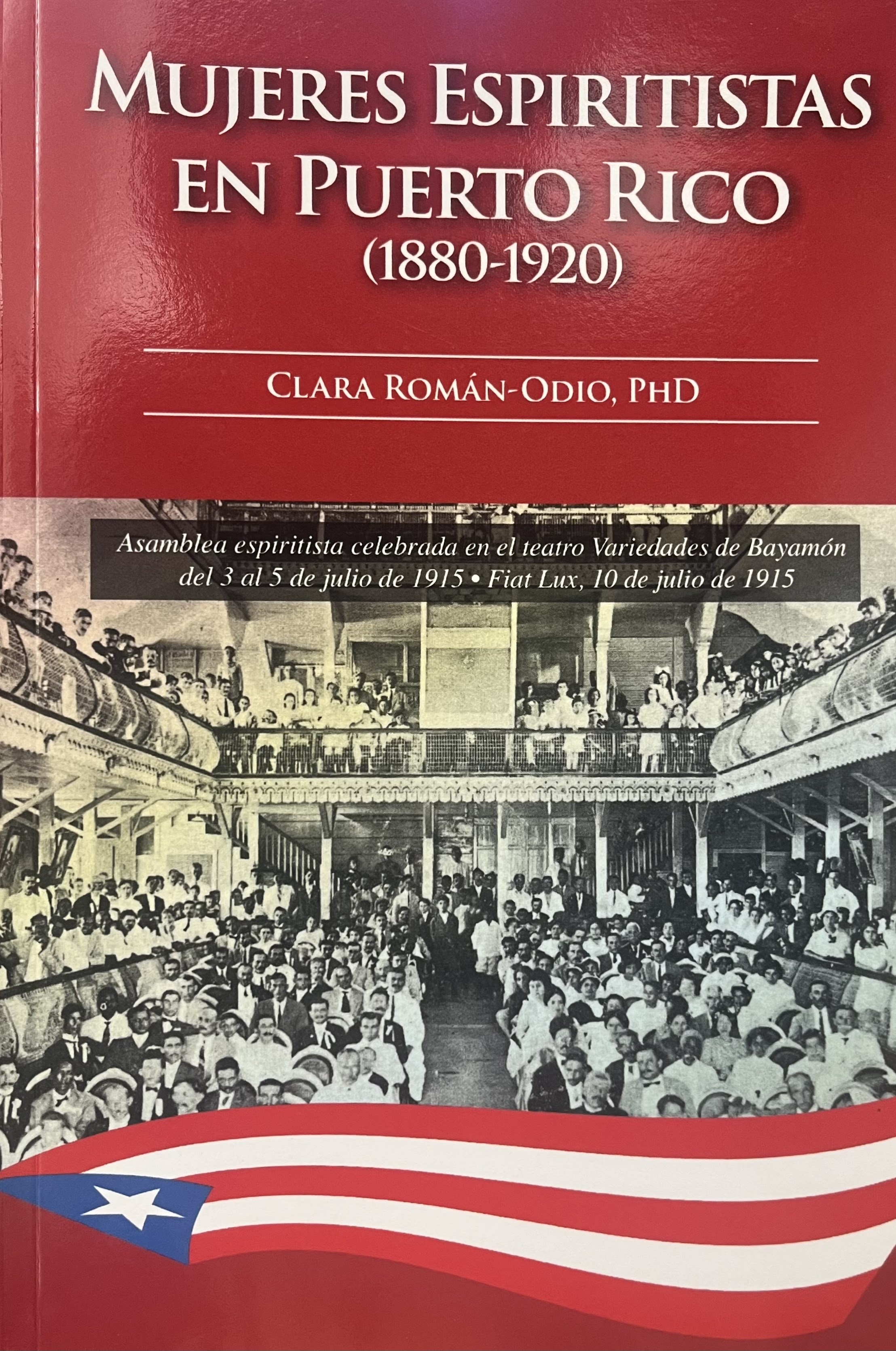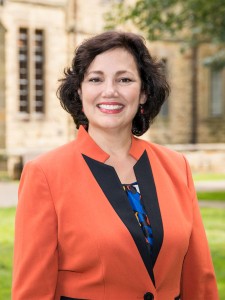A little-known — but highly influential — group of women writers and activists in Puerto Rico are finally getting their due, thanks to the award-winning efforts of Professor Emerita Clara Román-Odio.

Her book, “Spiritist Women in Puerto Rico (1880-1920)” has received multiple accolades, including an honorable mention in the 2023 International Latino Book Award’s category of best nonfiction-women’s theme that was announced recently.
The bilingual project about female members of the global Spiritist movement that began in France in the 19th century explores how they promoted universal suffrage, abolition of the death penalty and much more.
The timing of the award couldn’t be better, coming as it does during Hispanic Heritage Month, which concludes Sunday.
“By focusing on the ideas of ‘prosperity, power and progress’ — which is the theme of the Latinx commemoration this year — these women worked on cultural change as a means for the construction of a more equitable and just society,” Román-Odio said.
A native of Puerto Rico, Román-Odio joined the Kenyon faculty in 1992, teaching Spanish, Latin American literature, and Latino Studies. Her research aims at understanding the impact of decolonial theory and critical gender and race studies on cultural productions from Latin America and the U.S.-Mexico borderland.
She led the Ohio Humanities Digital Exhibition “Latinos in Rural America” — an oral history project focusing on Knox County that was included in the Smithsonian Institution Traveling Exhibition Service — and received the Senior Faculty Trustee Teaching Excellence Award in 2017.
Román-Odio talked about the award and her scholarship in the context of current celebrations of Hispanic/Latinx accomplishments.
Tell me about your latest book.
The focus of the research was understanding the contributions that Spiritist women writers and social activists had during the turbulent transition of the island from Spain to the United States. If you explore what's available today on the subject, what you find is these women are in footnotes. In actuality, they were remarkable women writers and also social activists who challenged the social structures of Puerto Rico at its core.
What is Spiritism?
Spiritism is not a religion, it is not linked to superstitions. It is a doctrine that studies, proposes and actually demonstrates that there exists a relationship between human spirits who are disembodied and spirits in the flesh like you and me. And from this relationship a teaching is received and codified into a moral philosophy that has immediate application to society. This philosophy is very interesting because it affirms gender equality at a time when women had virtually no rights. The doctrine arose with the formidable theoretical and experimental work of a French pedagogue, the mid-19th century Hippolyte Leon Denizard Rivail, known widely as Allan Kardec.
How did its female followers influence the history of Puerto Rico?
It offered them a conceptual framework that enabled freedom of thought to observe their society critically. And this led them to advance feminist principles to mobilize themselves in the public sphere. In several ways, they changed the way women manage home, marriage, church and state, and they wrote about it. By developing ideas in the fields of spirituality, feminism, anarchism, and unionism, they succeeded in integrating Spiritist principles with an emancipated vision of the woman and of the human being.
What's the significance of Hispanic Heritage Month to you?
It was created with very good intentions: to give visibility to populations from the Hispanic world who have made significant contributions to this country. There is, of course, an imbalance of power and benefits, and we all need to focus on correcting such asymmetry by commemorating those achievements. Even if it is one month per year, we need to focus on that.
How does scholarship like yours help with addressing some of these issues?
It brings out of the darkness all of the remarkable contributions of the Hispanic world to the global society. We need to change the perspective of “the West and the rest.” That is a biased perspective from the 19th century. Scholarship is a very important instrument to dissect those biases or those problematic areas of our culture. In a way, my personal scholarship has been driven over the last 20 years towards that objective, towards the opportunity to see those structures dismantled.
What did you learn from your previous work with “Latinos in Rural America” that you find still relevant?
Latinos are really changing the face of this place. They came from all levels of social and economic backgrounds. They are in the food industry, but also in academia, in medicine, all kinds of fields. And they come to this country for different reasons. I think that this type of community engagement must continue if we want to form students who are really trained to deal with real problems and to make balanced contributions to society. We need to break down cultural barriers, and the only way we achieve that is by exposing both communities to each other.
What can people do to extend the work of celebrating Hispanic/Latinx heritage beyond one month?
They can do all kinds of things. We can bring writers from the Hispanic world who can offer perspective about all of the current issues that are going on globally. Bring them from abroad — don't bring them only from D.C. or Columbus. Bring Hispanic/Latinx artists who are going to enrich us because art plays an important role in breaking down these barriers. Bring Latinos to the table to talk about critical issues at Kenyon.
